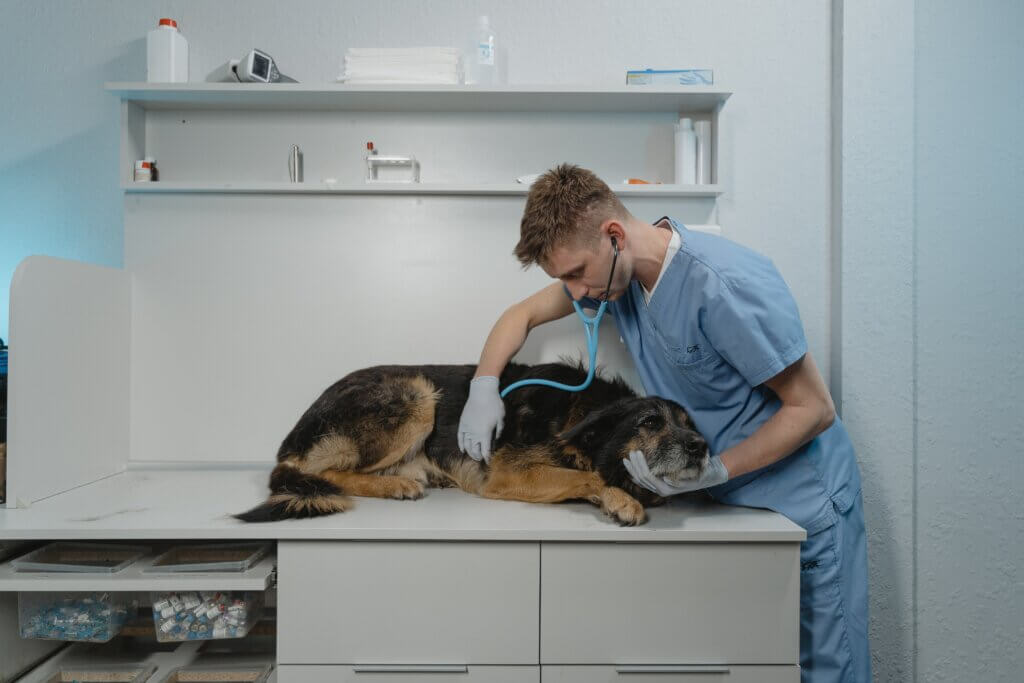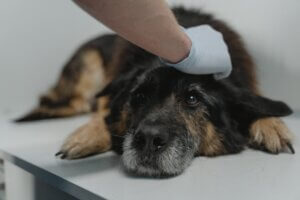National Poison Prevention Week: How to Protect Your Pup

The third week in March each year since 1961 is National Poison Prevention Week. National Poison Prevention Week aims to raise awareness about potential poisons and how to get help for poisoning.
While National Poison Prevention Week originally began to protect children from accidental poisonings, it has since evolved to protect pets from unintentional poisonings as well.
Pet Poison Hotline reports, “According to the National Safety Council, thousands of lives have been saved due to physical barriers like child-resistant packaging and awareness campaigns. Likewise, in recent years, the veterinarians at Pet Poison Helpline have worked tirelessly to raise awareness about protecting our vulnerable and unknowing pets from common household items that are highly poisonous to them.”
Unfortunately, pet poison hotlines tend to handle hundreds of thousands of phone calls regarding pet poisonings every year.
ASPCA reports, “The ASPCA Animal Poison Control Center (APCC) has officially hit a significant milestone— they recently marked the four millionth case of potential toxicity since the APCC’s inception nearly 45 years ago. […] In 2021, the APCC call volume increased more than 22%, assisting animals of all sizes and species across all 50 states, with cases ranging from gardening products to essential oil toxicity.”
Pet poisoning occurs because there are many foods and products that are safe for humans but are toxic for pets, such as chocolate.
Spend time pet-proofing your home and looking for the following potential dangers in your home and yard this National Poison Prevention Week.
Poisonous Foods
According to ASPCA, “Food products, which occupy the third spot, accounted for over 12 percent of total cases, due in large part to concerns about the artificial sweetener xylitol, grapes and raisins, onions and garlic, and most recently protein bars and powders. Chocolate, which is listed separately from other foods, is the fourth most common toxin. In 2019, APCC received the equivalent of over 67 cases of chocolate toxicity per day.”
Here are poisonous foods for dogs:
- Chocolate
- The artificial sweetener xylitol
- Grapes and raisins
- Onions
- Garlic
- Alcohol
- Avocado
- Coffee
- Citrus
- Coconut and coconut oil
- Macadamia nuts (and nuts in general)
- Milk and dairy
- Raw/Undercooked meat, eggs, and bones
- Too much salt
- Yeast dough
Dangerous Medications
According to ASPCA, “Throughout 2019, APCC handled over 39,000 cases involving prescription medications such as antidepressants, ADHD, cardiac and thyroid medications. Similar to OTC medications, these can all cause dangerous symptoms in pets such as gastrointestinal ulcers and kidney failure.”
Keep your medications securely locked away.
In addition to medications for humans, you should also take care with veterinary products. Many medicines for dogs have dog-friendly flavors added to make it easier for pets to consume. However, like human medications, there are specific dosages required. If the taste of a doggy medicine is tempting, your dog may suffer from accidental poisoning.
Toxic Plants
Certain indoor and outdoor plants and flowers are toxic for dogs, such as sago palm, oleander, azaleas, poinsettias, lilies, and spring bulbs.
Unfortunately, the list of toxic plants and flowers is pretty lengthy. The ASPCA has a list of 417 toxic plants with corresponding images.
Household Products to Avoid
Many household products are dangerous for dogs.
Be careful with using and storing products such as:
- Fertilizers
- Pesticides
- Bleach
- Carpet fresheners and cleaners
- Essential oils
- Fabric softener sheets
- Toilet cleaning tablets
- Antifreeze
- Tobacco or vape liquid
- Batteries
- Glow sticks
- Paint
- Kerosene and gasoline
Symptoms of Pet Poisoning
How do you know if your dog has accidentally ingested something poisonous? Beyond seeing evidence (such as chocolate wrappers), watch your dog’s behavior.
Pet MD suggests, “Your pet may be experiencing unexplained vomiting, diarrhea, or may appear to be weak (lethargic) to the point of being unable to move.”
What to Do If You Suspect Poisoning
If you suspect your dog has ingested something poisonous, use the resources National Poison Prevention Week promotes.
ASPCA Animal Poison Control Center Phone Number: (888) 426-4435
Pet Poison Helpline: 800-213-6680
Contact your veterinarian immediately!
Know what else is dangerous for your dog? Lingering piles of bacteria-filled poop in the backyard. Sign up for regular pooper scooper service to rid your lawn of this danger.





